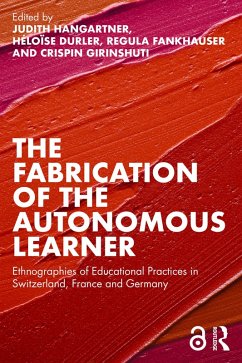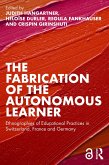Based on in-depth fieldwork and long-term observation of interactions in classrooms and other scholastic settings, scholars from three European countries - France, Germany and Switzerland - show how the translation of the figure of the 'autonomous learner' into classrooms is shaped by distinct cultural traditions. Chapters analyse teaching routines and conceptions of self-reliance involved in autonomy-oriented settings and discuss how these change the sociality of the classroom. They scrutinize how autonomy is used to differentiate between students and how it contributes to the reproduction of social inequality. The book brings into dialogue two neighbouring research traditions that research autonomous learning from a sociological perspective and which have largely ignored each other until now. In so doing, the contributions engage a critical perspective for a careful empirical analysis in order to better understand what is being done in the name of autonomy.
Providing insight into the many facets of developing and nurturing self-standing pupils across various educational contexts, this is ideal reading for scholars in the field of education, as well as teachers and decision-makers across the educational sector.
Dieser Download kann aus rechtlichen Gründen nur mit Rechnungsadresse in A, B, BG, CY, CZ, D, DK, EW, E, FIN, F, GR, HR, H, IRL, I, LT, L, LR, M, NL, PL, P, R, S, SLO, SK ausgeliefert werden.









